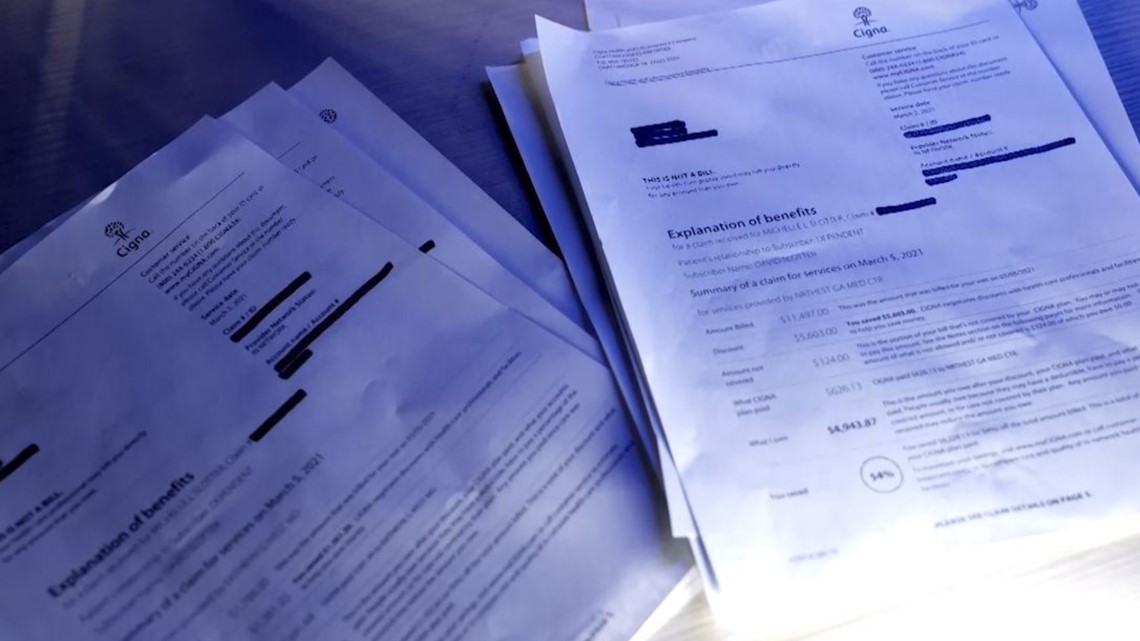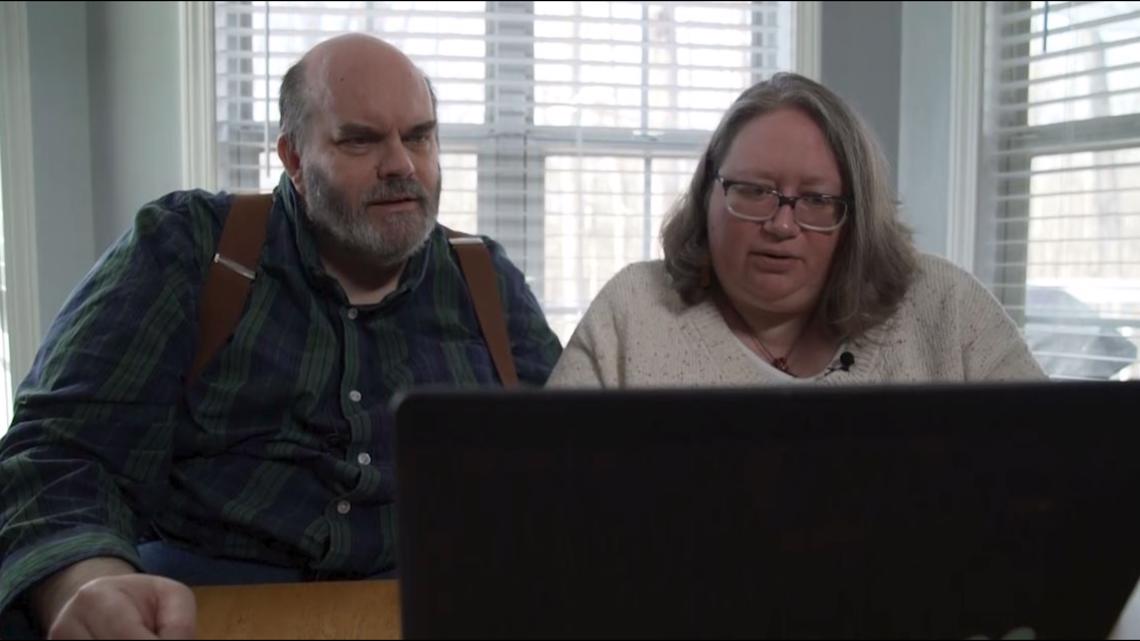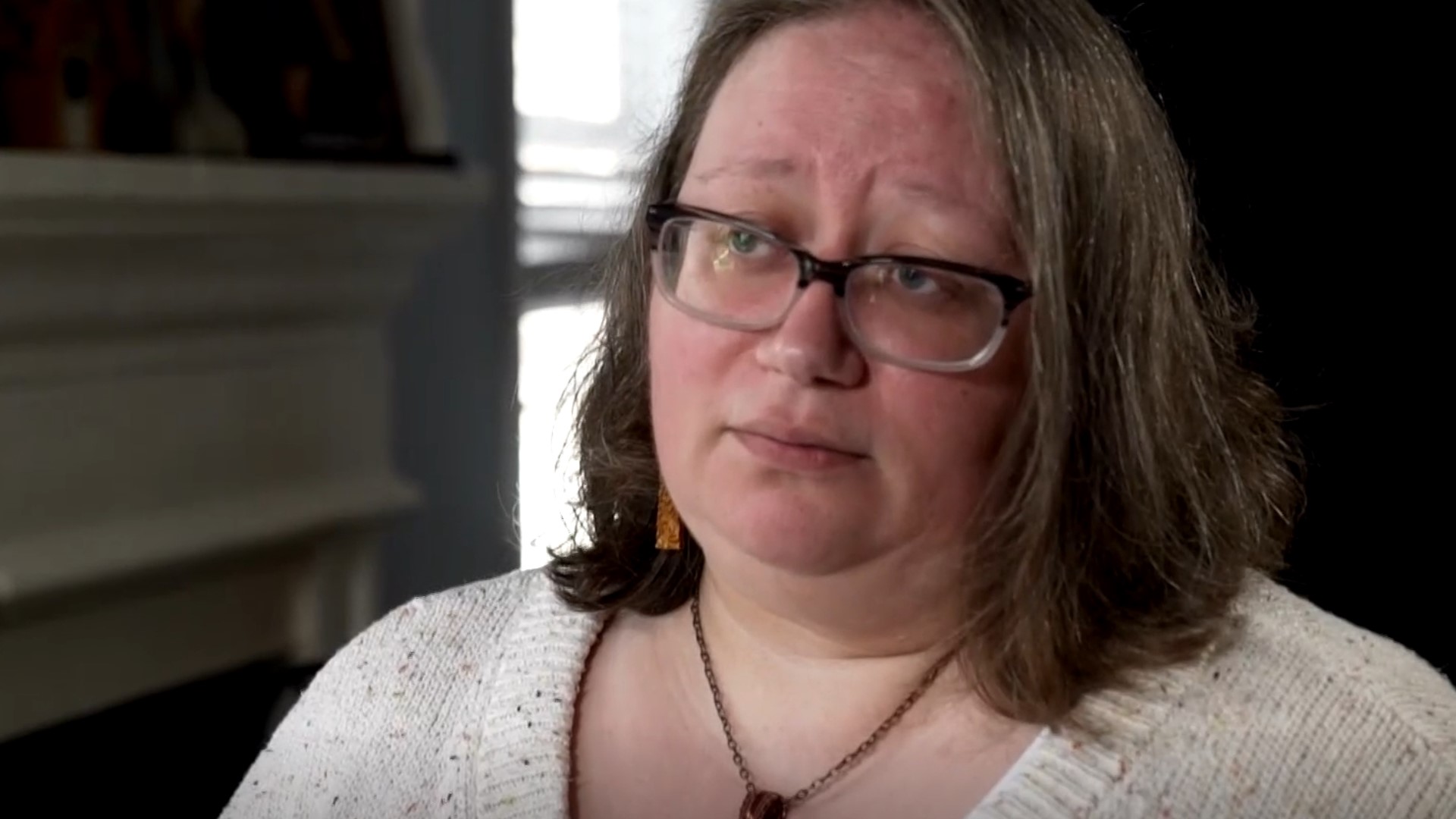ATLANTA — Healthcare costs keep rising and sometimes it's hard to understand what’s behind it. There's been stories of patients being charged different prices for the same procedure based on their health insurance. But one family found out the hard way that where you go for treatment matters, too.
Michelle Slotter lives with diverticulitis, which means her food can get trapped in the lining of her intestines. Something as simple as a seed can cause a serious infection that tears a hole in her digestive tract.
“When I go to a burger joint, I can’t have sesame seeds," she explained. "I can’t have poppy seeds on my bagels. I can’t have strawberries, no kiwis."
Her condition sent her to the emergency room three times in the past decade, she said.
“It just felt like a knife in my inside," she said. "A flaming hot knife. And it was unrelenting.”
While getting care fast was the most important, the Slotters said they wished they had more time to compare prices before racing to the hospital.
“My jaw dropped to the floor,” said Michelle's husband, Dave Slotter, as he recalled his reaction after seeing their last medical bill.
The bill cost more than double what they expected. The difference in cost wasn't in the copay. Instead, it was the rate negotiated by their insurance.
Both of their last two emergency room visits were in-network. Nothing changed with their health insurance coverage or their employer. The only difference: the location they went to for treatment.
Spotting the difference
The Reveal,11Alive's investigative team, studied Michelle’s last two hospital visits and compared the amounts charged by each facility.
First, we noticed wildly different costs for services like a CT scan and lab work. The prices were just as inconsistent when we looked at what the insurer, CIGNA, agreed to pay.
For example, CIGNA agreed to pay one hospital $740 for a CT Scan but agreed to pay close to $3,000 for the same service at another hospital.
When it's all added up, the hospital that charged the patients less, ended up earning $3,700 more all because it had higher negotiated rates.


In both cases for the Slotters, due to their high deductible, they ended up paying the bulk of the bills.
“We’re told to have insurance and we get insurance," Michelle said. "We get the best we can. We stay in network. We do what we’re supposed to do, and they pull stuff like this."
CIGNA declined to talk on camera about their rates. However, they did send a written statement:
“We are committed to ensuring our customers have access to high-quality, affordable health care. Rates charged by providers for health care services and the amount that the customer is responsible for paying are determined by multiple factors, including the customer’s plan design and an insurer’s contract with the hospital, among others. We encourage customers to reach out to us if they have questions about their benefits or a bill they have received from a provider.”
The couple said they reached out to them about their concerns.
“I did talk to them and didn’t get a positive response from them,” Dave said. “They said it is what it is. You just have to pay it.”
The search for answers
CIGNA told The Reveal, customers can get cost information by calling a care advocate. Dave called back and said he still didn’t get any pricing information, but this time was encouraged to file an appeal on his previous bill.
The Reveal also reached out to the America’s Health Insurance Plans (AHIP), a national association of health insurance providers. A spokesman declined to answer any specific questions related to contract negotiations and pricing.
“It creates a marketplace that’s impossible for the average person to understand and I think that’s by design,” said Liz Coyle, the executive director of the consumer advocacy group, Georgia Watch, which put together a guide on how to understand and appeal medical bills.
Last year, federal lawmakers required hospitals to post prices online. We asked the Slotters to see if those reports could help them find a cheaper hospital.
On one hospital website, the Slotters said they only found lines and lines of data that meant nothing to them.


“This is ridiculous,” Michelle said when the data popped onto her screen.
On the second hospital site, the couple said they found a search tool to get a range in pricing, but even that couldn’t narrow down what they would actually be asked to pay.
“When these were first implemented at the federal level, we did provide comments to suggest that these data dumps will not be helpful to patients,” according to Anna Adams with the Georgia Hospital Association.
Adams said she understands the confusion and frustration.
While insurers negotiate rates with an entire hospital system, like Piedmont or Wellstar, the rates at each facility will still differ. That’s because one facility might pay more to attract nurses and physicians, while another may treat a higher percentage of low-income patients.
In those cases, Adams said, hospitals are either not being reimbursed at all or getting back money far below what it costs them to provide services.
"It would be in an insurance company's best interest in that scenario to negotiate really good rates with the hospital to make sure that the hospital remains financially viable and can stay in that community,” she said.
What's next
Now, Georgia is in the process of creating what’s called an All-Payer Claims Database.
“That’s a real win for Georgia," Coyle said. "Georgia is ahead of the curve."
In theory, every medical bill will get dumped into the database for the state to study. It won’t include names and personal information, but the hope is that it will reveal what a service really should cost.
“We’ll be able to see some of these wide discrepancies that we’ve been talking about,” Coyle said. “We should have a better understanding of why there are those discrepancies and whether they are justified.”
The database won’t be up and running until the end of 2023. That’s why Coyle said she encourages everyone to fight their bills when they don’t seem right.
“Challenge and question,” she said.
The Reveal is an investigative show exposing inequality, injustice, and ineptitude created by people in power throughout Georgia and across the country.
MORE FROM THE REVEAL:

